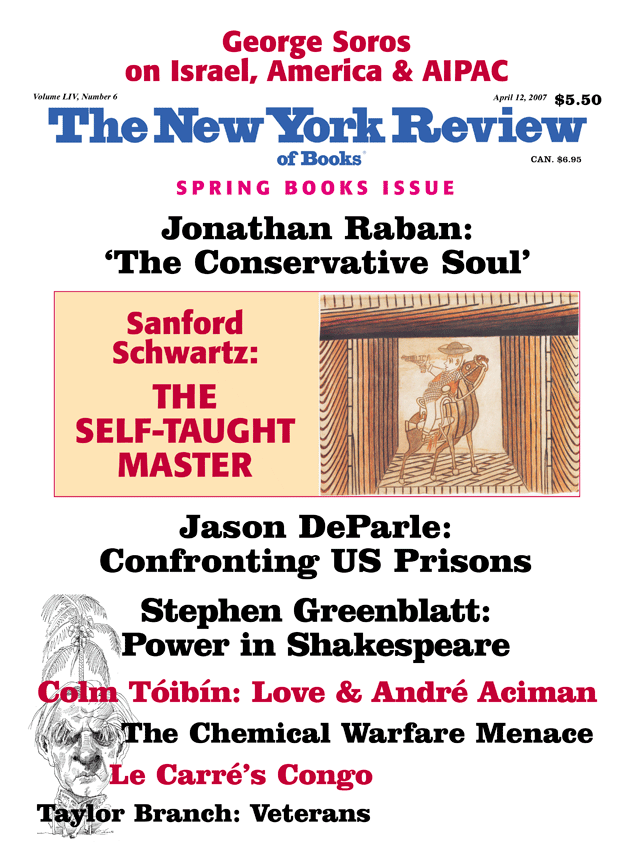In response to:
What Would Hannah Say? from the March 15, 2007 issue
To the Editors:
Jeremy Waldron [“What Would Hannah Say?” NYR, March 15] quotes me attributing Hannah Arendt’s alleged misjudgments about Israel and things Jewish to the fact that she had read too much anti-Semitic literature for her own good. I attributed nothing of the sort, the reference was to Ms. Arendt’s streak of paranoia believing that the Jewish establishment was out to get her by foul means including bribing a well-known New York judge to write a negative review of one of her books.
Mr. Waldron further quotes me attributing her misjudgments on the United States to the fact that she never learned to drive a car. But this “minor fact” referred to a whole cohort of émigrés (I mentioned among others Leo Strauss). It might have occurred to the earnest Mr. Waldron that this was written tongue in cheek. Tocqueville, after all, did not have a driving license either. On second thought, there could be a grain of truth in this observation. Given the size of this country not having a car is a handicap for most of us.
Walter Laqueur
Washington, D.C.
Jeremy Waldron replies:
Walter Laqueur did make both the observations about Hannah Arendt that I reproached him for. On page 492 of his article “The Arendt Cult” in the Journal of Contemporary History (October 1988) he wrote (concerning Arendt’s response to a negative review of the Eichmann book): “There was a streak of paranoia in Arendt on such occasions; perhaps she had read too much anti-Semitic literature for her own good.” It is true that the other remark (page 491 of the same article) about not having learned to drive a car is made also about Strauss, Herbert Marcuse, and “most of the Frankfurt School.” “Thus,” Laqueur comments, “imagination had to compensate for lack of knowledge of reality.” He goes on immediately to identify Hannah Arendt as a “prime example” of this. If Laqueur assures us that either or both of these remarks were made in jest, it must be said that they don’t sound that way in context. In jest or not, both remarks were silly and unkind and one of them was offensive; that was my point.
This Issue
April 12, 2007


